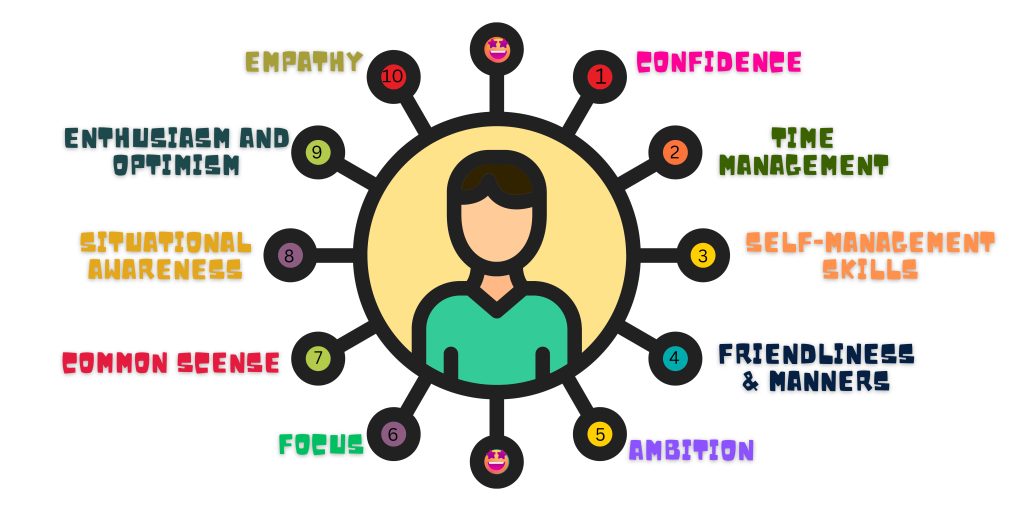
In today’s rapidly evolving technological landscape, it’s easy to get caught up in the hype of the latest gadgets and software. Technical skills like coding, data analysis, and digital literacy are undeniably crucial in the modern job market. However, there’s another set of skills, often overlooked, that hold immense value – soft skills.
What are Soft Skills?
Soft skills encompass a range of interpersonal and intrapersonal skills that enable us to interact effectively with others and navigate the complexities of the workplace. These include:
- Critical Thinking: The ability to analyze information objectively, solve problems creatively, and make sound decisions.
- Communication: Clear, concise, and confident communication – both written and verbal – is essential for conveying ideas, collaborating with colleagues, and building strong relationships.
- Collaboration: The ability to work effectively as part of a team, respecting diverse perspectives, and working towards a common goal.
- Leadership: Motivating and inspiring others, fostering a positive work environment, and taking initiative.
- Adaptability and Flexibility: The ability to embrace change, learn new skills quickly, and adjust to evolving workplace demands.
- Time Management: Prioritizing tasks effectively, managing deadlines, and utilizing time efficiently.
- Problem-Solving: Identifying and resolving problems independently and collaboratively.
- Emotional Intelligence: Understanding and managing your own emotions, while recognizing and responding effectively to the emotions of others.
Why are Soft Skills So Important?
While technical skills are essential for getting your foot in the door, soft skills are often the key to unlocking career advancement and long-term success. Here’s why:
- Machines Can’t Replicate Them: While technology continues to automate many tasks, soft skills remain uniquely human. They are the cornerstone of building strong relationships, fostering innovation, and navigating complex social dynamics within a team.
- The Human Touch Matters: Even in a tech-driven world, effective communication, empathy, and the ability to build rapport are essential for client interaction, customer service, and building trust.
- Adapting to Change: The modern workplace is in a constant state of flux. Soft skills like adaptability and problem-solving equip individuals to thrive in an ever-changing environment.
- Leadership and Teamwork: Collaboration is paramount in today’s workplace. Soft skills like leadership, communication, and emotional intelligence are critical for building and leading successful teams.
Developing Your Soft Skills:
The good news is that soft skills can be learned and honed through various means:
- Take Courses or Workshops: Look for workshops or online courses focused on developing specific soft skills like communication, leadership, or time management.
- Volunteer Work: Volunteering allows you to practice teamwork, communication, and problem-solving skills in a real-world setting.
- Join Clubs or Professional Networking Groups: Social interaction helps hone interpersonal skills and build confidence in different settings.
- Seek Mentorship: Learn from experienced professionals who can offer valuable insights and guidance on developing soft skills.
- Reflection and Self-Assessment: Actively reflect on your interactions and communication style. Identify areas for improvement and set goals for development.
Investing in soft skills is an investment in your future career. They are the bridge between technical expertise and professional success. By fostering strong soft skills alongside your technical knowledge, you position yourself as a well-rounded and valuable asset in today’s dynamic job market.
